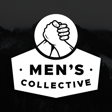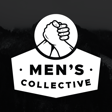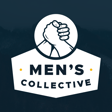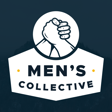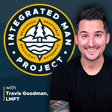
From Breakdown to Breakthrough: Therapy, Codependency, and Emotional Intelligence (feat. Sam Powers)
Welcome back to The Integrated Man Project! I'm your host, Travis Goodman, and today we have a truly transformative episode lined up for you. We're diving deep into personal growth, healing, and the journey to reconnect with our true selves. Joining us is the incredible Sam Powers—a personal development coach, custom home builder, and dedicated father of three.
In this heartfelt conversation, Sam opens up about his struggles with shame, feelings of inadequacy, and how these led to alcohol abuse and an emotional breakdown in 2020. We'll hear about the life-changing impact of his six-day intensive therapy workshop at On Site and his journey of rebuilding both his home and his emotional life.
Together, we'll explore the pressures of evangelical and purity culture, the challenges of codependency, and the importance of empathy, vulnerability, and intentionality in the process of healing. Sam shares profound insights from his work on "primal questions" and offers practical advice on how men can embrace their emotional healing.
HIGHLIGHTS:
- The Breaking Point and Redemption: Sam opens up about his emotional breakdown in June 2020, driven by shame and feelings of inadequacy, leading him to alcohol abuse. His turning point came through his wife's encouragement and attending a six-day intensive therapy workshop called On-Site.
- Codependency Unraveled: Reflecting on his past, Sam discusses how he discovered his codependent tendencies and worked diligently to address them. He credits Melody Beattie's book, "Codependent No More," as a critical resource during his recovery, allowing him to break free from unhealthy patterns and find authentic ways to cope.
- Primal Questions and Personal Growth: Sam introduces the concept of "primal questions" – core emotional needs stemming from childhood – and how asking these questions has transformed his approach to coaching and personal development.
What's one question you need to answer about yourself to start your journey toward emotional healing and personal growth? Reflect on this and consider what steps you can take to seek the answers you need.
So, sit back, relax, and get ready for a powerful and enlightening conversation that promises to inspire and empower you on your own journey to integration.
JOIN THE MAILING LIST & GET INVOLVED!
WATCH ON YOUTUBE:
Connect and Support Sam:
Instagram: swamipowers
Web: www.sampowerscoaching.com
Connect and Support Travis:
YouTube: Travis Goodman
Instagram: @integratedmanproject
Check out the Website: IntegratedManProject.com
